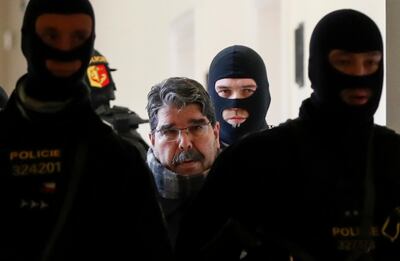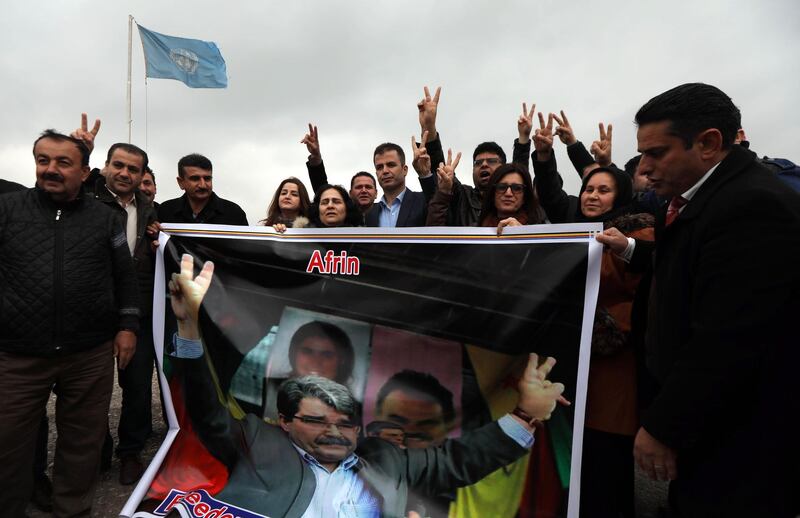A Czech court ruled on Tuesday that former Syrian Kurdish PYD leader Saleh Muslim be released, angering Turkey which had requested his extradition.
Mr Muslim formerly headed the PYD, the major component of a coalition that governs Kurdish-held autonomous parts of northern Syria. He was detained in Prague on Saturday night at the request of Turkey, which accuses him of disrupting the state and aggravated murder.
Municipal Court spokeswoman Marketa Puci said the court found no reason to keep Mr Muslim in detention, Associated Press reported. She said he had promised to remain within European Union territory and to be available for any further hearings in the extradition case.
No date for the extradition hearing was set.

Turkish Foreign Minister Mevlut Cavusoglu described the ruling as a "scandal", according to Associated Press. He told reporters during a visit to Algeria that his ministry had lodged a formal protest and would follow the case closely.
Deputy Prime Minister Bekir Bozdag, meanwhile, said the court ruling would have a negative effect on ties between Turkey and the Czech Republic.
"This decision very clearly amounts to support for terrorist groups," Mr Bozdag said.
The deputy prime minister has previously noted that both Turkey and the Czech Republic are parties to the European Convention on Extradition.
Ahead of the Prague ruling, Turkish Prime Minister Binali Yildirim said the court's decision would be a "test" for the Czech Republic on its sensitivity toward the fight against terrorism and its solidarity toward a Nato ally.
"Whatever the outcome, these terrorist ringleaders will not be able to walk free," Mr Yildirim said. "We will continue to make life unbearable for them."
Mr Muslim's lawyer told reporters on Monday that his client had promised the court not to obstruct further proceedings.
The same day Mr Bozdag confirmed that Turkey had sent its extradition request to the Czech Republic on Sunday.
"Our request is for the extradition for Saleh Muslim — the manager of a terror organisation, a ringleader and who is still involved in terror actions against Turkey — as required by the law that binds us both," he said.
In Prague on Monday, Tereza Schejbalova, a spokeswoman for the Czech Justice Department, said authorities had yet to receive the formal extradition request and that it could take several more days.
Turkish president Recep Tayyip Erdogan told reporters in Istanbul that Turkish authorities were taking steps to avoid "an adverse outcome" to the extradition request.
Turkey last month launched an air and ground offensive supporting Syrian rebels against the US-backed YPG militia — the armed wing of the PYD — in its western enclave of Afrin.
Ankara says the YPG and PYD are "terrorist" extensions of the Kurdistan Workers' Party (PKK), which has waged a three-decade insurgency against the Turkish state.
Mr Muslim is wanted by Turkey over a February 2016 attack in Ankara that killed 29 people and which Turkish authorities blamed on Kurdish militants.
He has been charged and faces 30 life sentences if found guilty, but he has dismissed the accusations against him.
If he is extradited, he would be one of the most senior Kurdish officials to be in Turkish custody since the detention of PKK founder Abdullah Ocalan in 1999.






